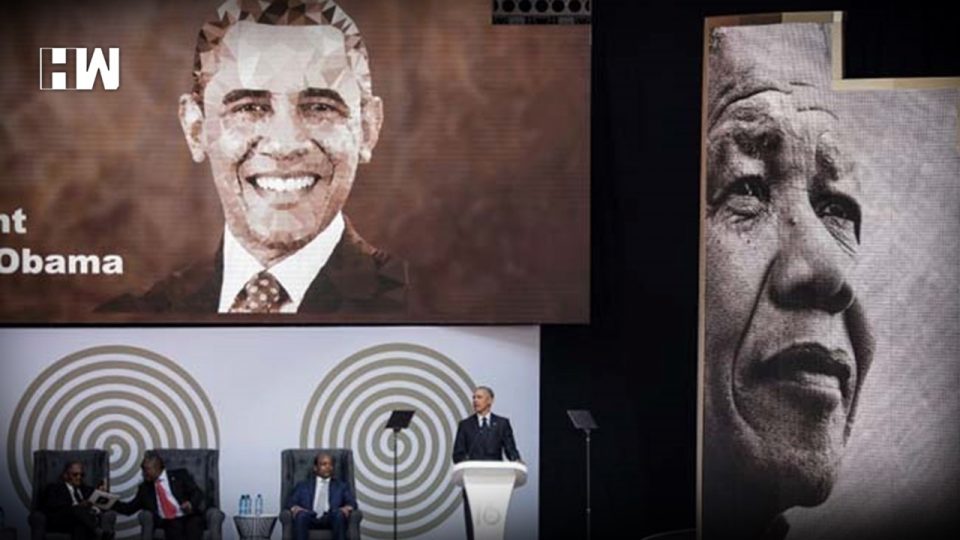Former US President Barack Obama, who has often spoken about the influence of Mahatma Gandhi on his life, today invoked him during a major speech in honour of anti-apartheid leader Nelson Mandela, while articulating his vision of equality, justice and freedom.
Obama, who scripted history by becoming the first black President of the United States in 2009, has long shown a fascination with Mahatma Gandhi. He has a picture of him on the wall of his Senate office and even cited him during his Nobel Prize acceptance speech.
In an address in honour of Nelson Mandela ahead of the 100th anniversary of his birth, Former US President Barack Obama, who has often spoken about the influence of Mahatma Gandhi on his life, today invoked him during a major speech, while articulating his vision of equality, justice and freedom.
“Let me tell you what I believe. I believe in Nelson Mandela’s vision, I believe in a vision shared by (Mahatma) Gandhi and (Martin Luther) King, and Abraham Lincoln, I believe in a vision of equality and justice and freedom and multi-racial democracy built on a pretense that all people are created equal and are endowed by our creator with certain inalienable rights.
“And I believe that a world governed by such principles is possible and that it can achieve more peace and more cooperation in pursuits of a common good. That’s what I believe,” Obama said.
He said that there was a choice between two visions of humanity’s future that the world must choose between.
“How should we respond? Should we see that wave of hope that we felt with Madiba’s release from prison? From the Berlin Wall coming down? Should we see that hope that we had as naive and misguided?” he asked.
Obama’s speech, the 16th annual Nelson Mandela Lecture, in one of his highest-profile appearances and his first return to Africa since he left office in 2017, CNN reported.
His lecture, titled “Renewing the Mandela legacy and promoting active citizenship in a changing world,” tracked the transformation of the world, particularly in terms of race relations and human rights, over the past 100 years.
“It is a plain fact that racial discrimination still exists in both the United States and South Africa,” he said.
As an independent media platform, we do not take advertisements from governments and corporate houses. It is you, our readers, who have supported us on our journey to do honest and unbiased journalism. Please contribute, so that we can continue to do the same in future.

